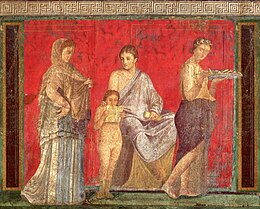| Part of a series on |
| Anthropology of religion |
|---|
 |
| Social and cultural anthropology |
Communitas is a Latin noun commonly referring either to an unstructured community in which people are equal, or to the very spirit of community. It also has special significance as a loanword in cultural anthropology and the social sciences. Victor Turner, who defined the anthropological usage of communitas, was interested in the interplay between what he called social 'structure' and 'antistructure'; Liminality and Communitas are both components of antistructure.[1]
Communitas refers to an unstructured state in which all members of a community are equal allowing them to share a common experience, usually through a rite of passage. Communitas is characteristic of people experiencing liminality together. This term is used to distinguish the modality of social relationship from an area of common living. There is more than one distinction between structure and communitas. The most familiar is the difference of secular and sacred. Every social position has something sacred about it. This sacred component is acquired during rites of passages, through the changing of positions. Part of this sacredness is achieved through the transient humility learned in these phases, this allows people to reach a higher position.
- ^ Turner, V. (1974). Dramas, Fields, and Metaphors: Symbolic Action in Human Society. Cornell University Press. pp. 273-4.
© MMXXIII Rich X Search. We shall prevail. All rights reserved. Rich X Search
